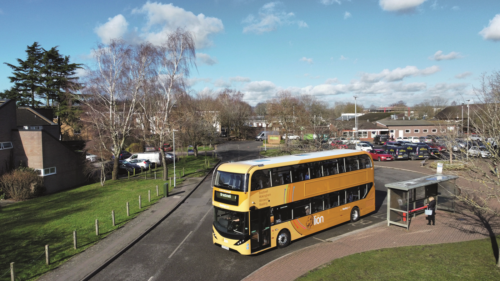
Less than 10% of all transport spending is allocated to the provision of bus services by the current government, but new polling shows more than four in 10 British adults want investment in bus services to be made a top priority by the next government, the CPT says. With more than half of all public transport passenger journeys made by bus, users are said to add £64 billion to the economy each year.
Commenting on the results of recent polling undertaken by YouGov for the Confederation of Passenger Transport (CPT), Director of Policy & External Relations Alison Edwards said: “Buses are the nation’s most affordable, accessible, and popular form of public transport – carrying over 10 million people a day. But spending is way below what many voters clearly think it should be. Our latest polling shows that people want to see more frequent buses, fares kept low, and more new routes. Among those who want the next government to prioritise spending on bus, those three things also matter significantly more to them than changing who runs the buses. The polling also highlights how, if the next government invests to improve services, many people will use the bus more often.”
The CPT says its latest polling shows clear support for making investment in buses one of the next Government’s top three transport spending priorities, with support highest among Labour voters and households with no access to a car as well as voters over the age of 65 (46%). More than half (56%) of those polled said they want the next government to prioritise spending on buses and consider investment to provide more frequent bus services to be most important.
A similar proportion (54%) want the next government to continue subsidising fares, whilst cutting fares for the under 22s was also found to be s popular. Over two-thirds of all respondents supported a national fare discount for people under the age of 22.
“Supporting fares for young people is a vital way to ensure access to education and employment. It also helps to seed sustainable transport habits. Like several metro mayors, the Confederation of Passenger Transport believes many more young people will jump on a bus if the next government opts to support a fares offer for the under 22’s across the UK,” added Alison.

